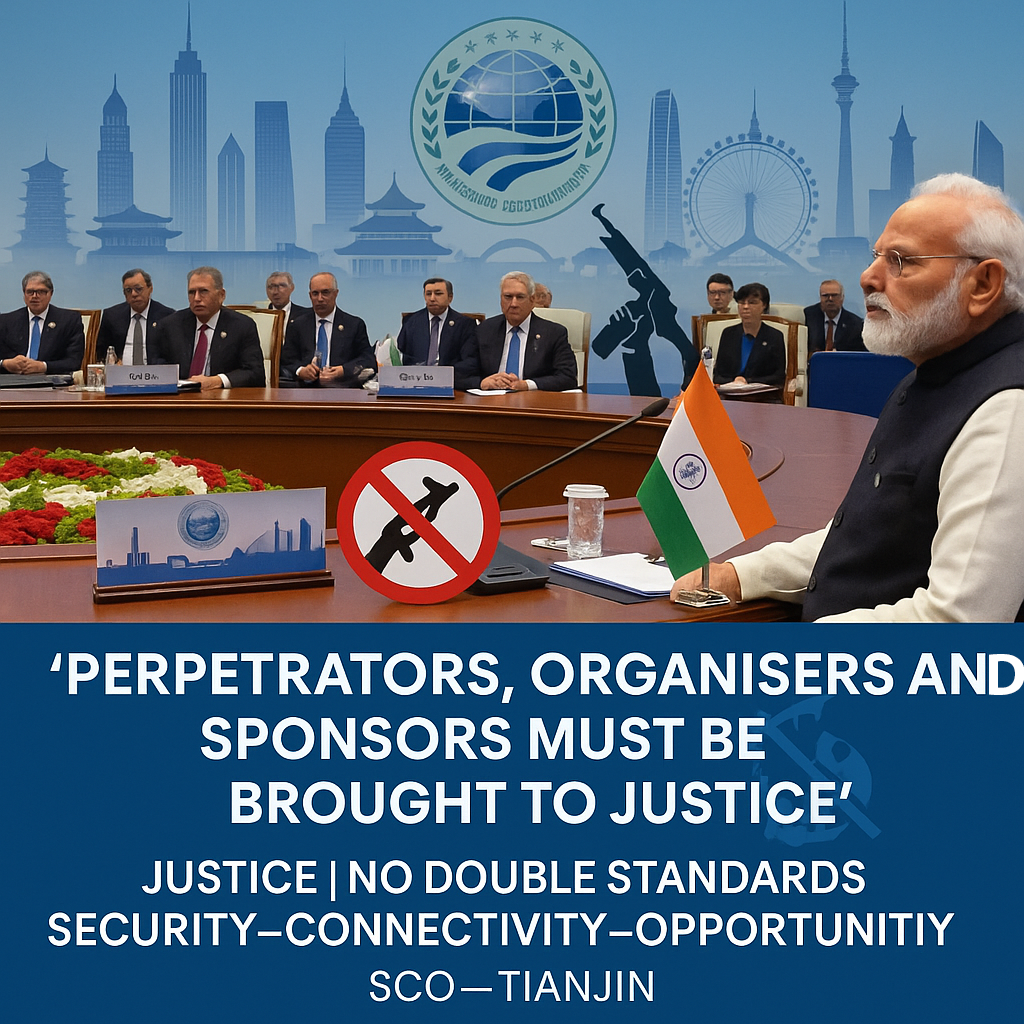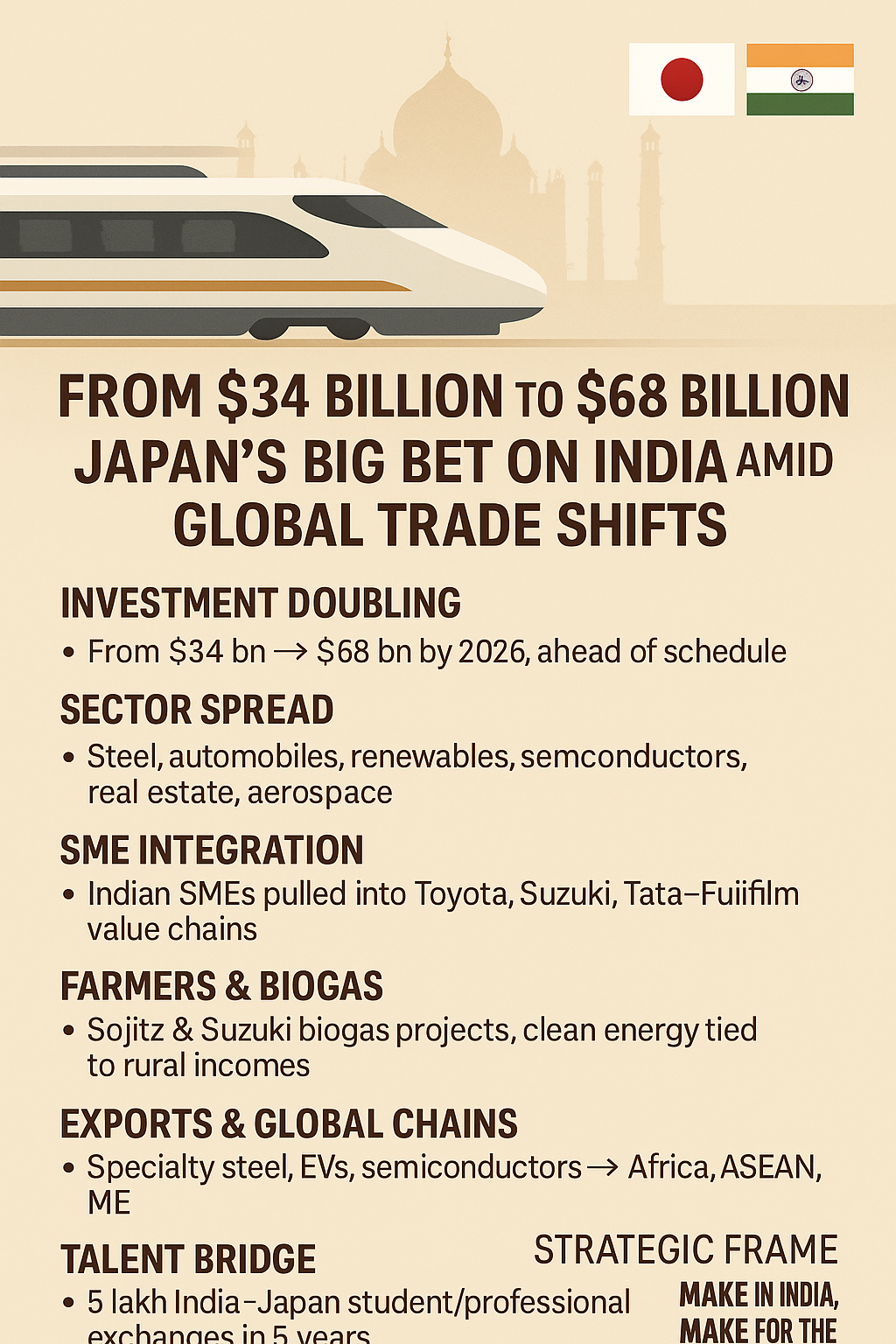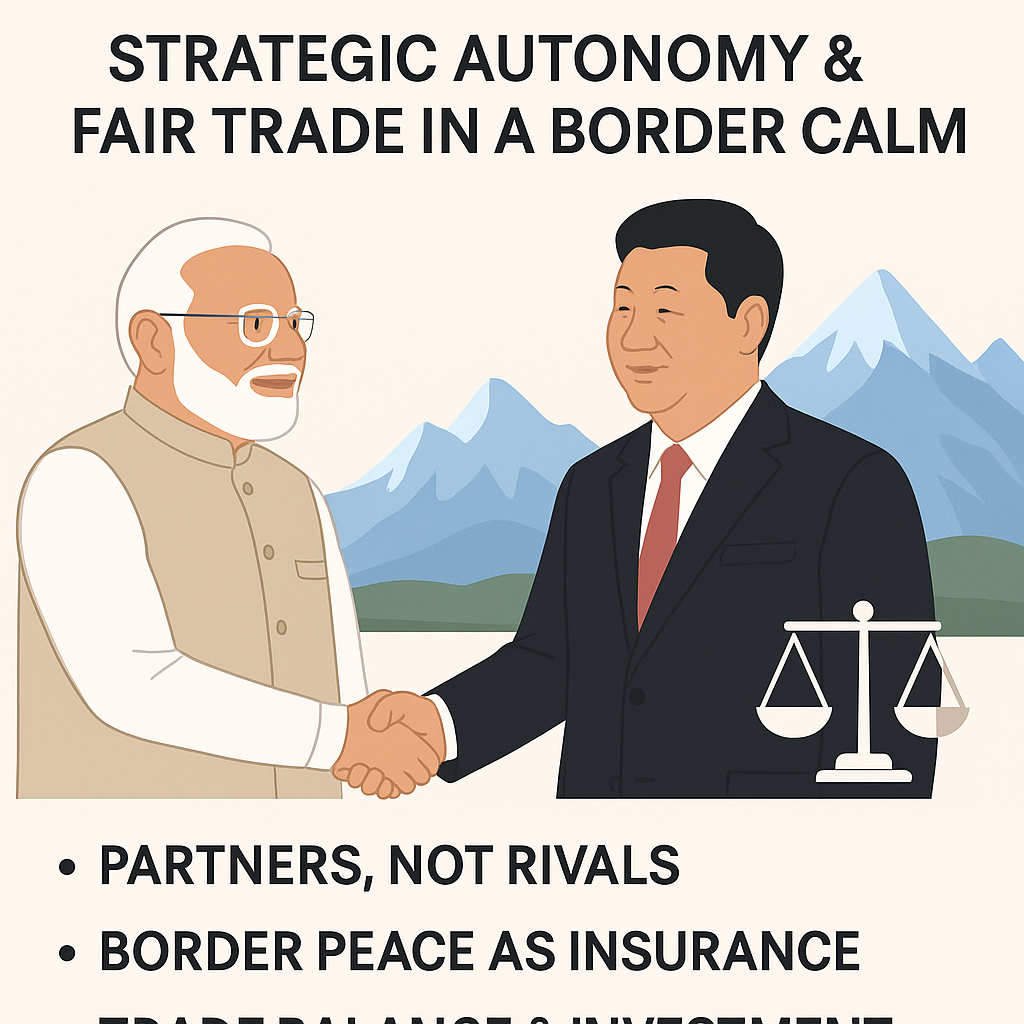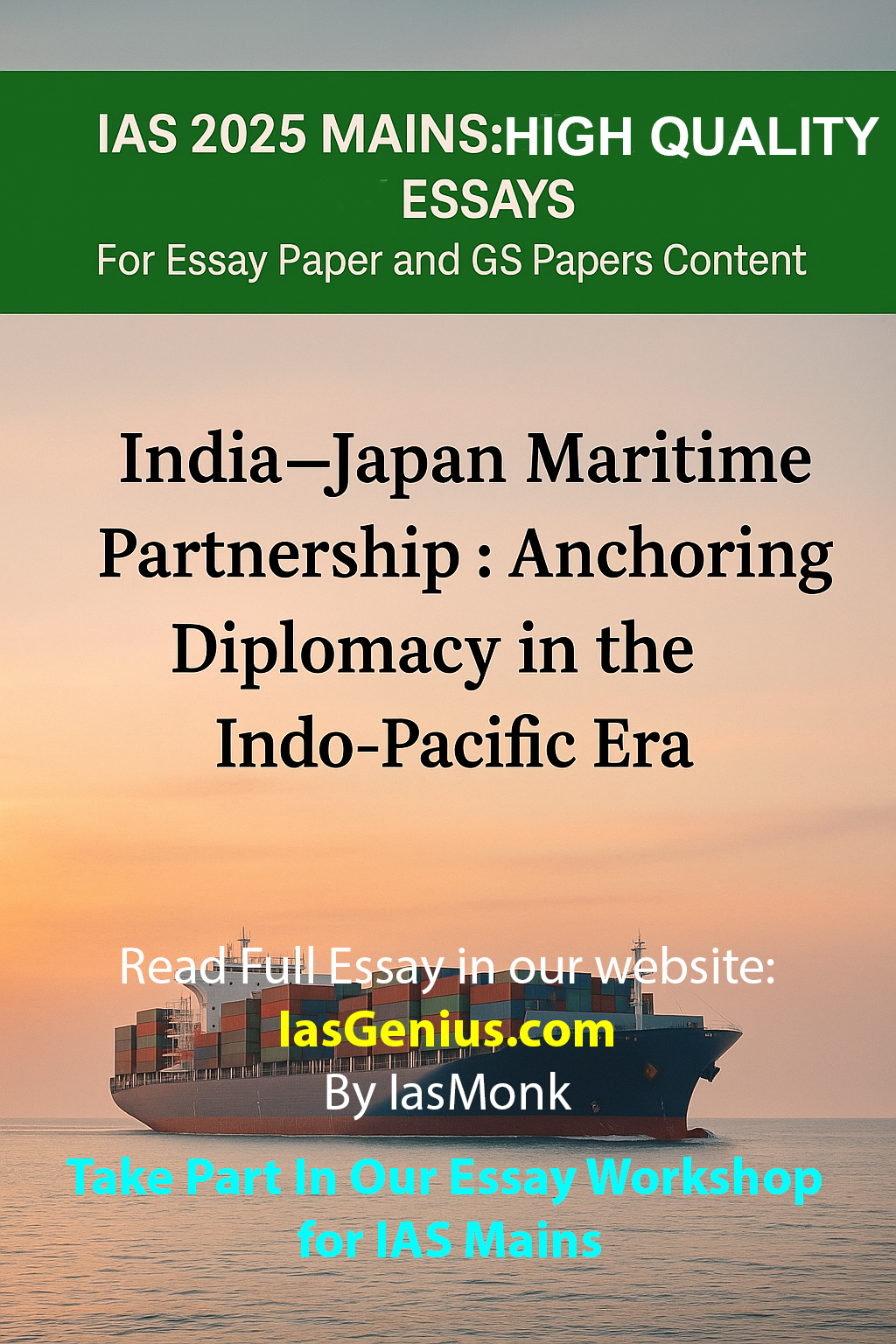
🧭May 21, 2025, Post 1: Faultlines Amid Trade: Türkiye, Azerbaijan & India’s Shifting Equations | High Quality Mains Essay | Prelims MCQs
Faultlines Amid Trade: Türkiye, Azerbaijan & India’s Shifting Equations

🗓️ Post Date: May 21, 2025
📘 Thematic Focus: GS2 – International Relations / Bilateral Relations / Trade Diplomacy
🌐 Intro Whisper
When wars are fought in shadows and diplomacy is cast in cold silence, even trade turns into a theatre of strategy. India’s ties with Türkiye and Azerbaijan are witnessing just that — a cooling of commerce amid the heat of geopolitical recalibration.
📌 Key Highlights
- Triggering Event — Operation Sindoor:
India carried out precision airstrikes in Pakistan and POK on May 7, 2025, under ‘Operation Sindoor’ in retaliation for the Pahalgam terror attack on April 22. - Türkiye & Azerbaijan’s Reaction:
Both countries criticised India’s military action and reaffirmed support for Pakistan.
Pakistan reportedly used Turkish drones during its counter operations. - India’s Trade Relationship with Türkiye:
– Bilateral trade agreement: Initiated in 1973.
– Joint Commission setup: 1983
– India’s exports to Türkiye:
USD 5.2 billion (Apr–Feb 2024–25), down from USD 6.65 billion in 2023–24
– Major exports: Mineral fuels, electricals, chemicals, autos, pharmaceuticals, rubber, cotton
– Imports from Türkiye:
USD 2.84 billion (Apr–Feb 2024–25), down from USD 3.78 billion
– Major imports: Marbles, apples, mineral oil, cement, gold, pearls, steel - India’s Trade Relationship with Azerbaijan:
– Exports: USD 86.07 million (2024–25), mostly tobacco, tea, cereals, rubber, chemicals
– Imports: USD 1.93 million, mainly animal fodder, perfumery oils, hides, and leather
– India is a major destination for Azerbaijani crude oil - People-to-People Ties:
– 3,000 Indians in Türkiye; 1,500 in Azerbaijan
– Tourists in 2023: 3 lakh to Türkiye, 2 lakh to Azerbaijan
– Presence of Indian students and ongoing academic collaborations (IIT Bombay, JNU) - Emerging Frictions:
– Rising calls in India to boycott Turkish and Azerbaijani goods
– Travel cancellations, tour operator withdrawals
– Suspension of academic MoUs
– Traders halting Turkish imports like apples and marble
🧭 Concept Explainer — Strategic Trade Retaliation
Strategic Trade Retaliation refers to informal economic responses by governments or citizens aimed at countries whose political actions are seen as hostile.
Rather than official sanctions, these may include:
– Tourism boycotts
– Suspension of student exchange or MoUs
– Bans on consumer goods or luxury imports
– Diplomatic downgrades
Such actions signal national disapproval, influence public perception, and can sometimes be more effective than formal sanctions in the short run.
🗺️ GS Paper Mapping
- GS Paper 2 – International Relations
– Bilateral relations between India and West Asia
– Impact of global developments on India’s interests
– Diaspora and people-to-people engagement
– Strategic use of economic tools in diplomacy
🌌 A Thought Spark — by IAS Monk
“Between borders and bazaars, between history and headlines — diplomacy weaves not just alliances but absences. When trade freezes, it is often a whisper of a deeper winter yet to come.”
High Quality Mains Essay For Practice :
Word Limit 1000-1200
“Strategic Faultlines and Fragile Friendships: India’s Evolving Equation with Türkiye and Azerbaijan”
“Diplomacy is not about friendship—it’s about interests. And when interests diverge, so does goodwill.”
In the realm of international relations, alliances are rarely cemented by sentiment; they are forged in the fires of national interest. The recent shift in India’s diplomatic equation with Türkiye and Azerbaijan offers a compelling case study of this truth. What were once civil, if cautious, bilateral ties have entered a phase of visible friction. The turning point? India’s launch of Operation Sindoor, a precision airstrike against terror infrastructure in Pakistan and Pakistan-occupied Kashmir, in response to the brutal Pahalgam terror attack. The backlash from Türkiye and Azerbaijan—staunch supporters of Pakistan—has catalyzed a moment of geopolitical re-evaluation for India.
This essay explores the evolving triad of relationships—India–Türkiye, India–Azerbaijan, and the India–West Asia strategic dynamic—in the broader context of shifting trade patterns, regional realignments, and India’s assertive posturing in global diplomacy.
Operation Sindoor and the Diplomatic Fallout
On May 7, 2025, the Indian Air Force launched Operation Sindoor, targeting nine terror hubs across the Line of Control. The operation, conducted under the framework of India’s evolving doctrine of proactive defense, marked not only a military response but a diplomatic signal to the world that India will no longer tolerate proxy terror attacks with impunity.
However, the international reaction was mixed. While many Western powers acknowledged India’s right to self-defense, Türkiye and Azerbaijan openly condemned the airstrikes, aligning themselves with Pakistan. This reaction is neither surprising nor unprecedented. Both Türkiye and Azerbaijan share a long-standing diplomatic and military alignment with Islamabad, bolstered by religious solidarity, shared defense interests, and historical affinity.
What exacerbated the tensions this time was the use of Turkish drones by Pakistan during retaliatory attempts—a clear signal of Türkiye’s indirect involvement in the conflict. For New Delhi, this was not merely a diplomatic slight but a breach of silent understanding between trade partners.
India–Türkiye Trade: A Relationship Tested by Politics
India and Türkiye share a bilateral trade agreement dating back to 1973, supplemented by a Joint Commission established in 1983. Trade volumes, while significant in sectors like mineral oil, pharmaceuticals, and electrical machinery, represent a modest fraction of India’s overall economic ecosystem.
- In 2023–24, India’s exports to Türkiye stood at USD 6.65 billion, falling to USD 5.2 billion in 2024–25.
- Imports from Türkiye declined from USD 3.78 billion to USD 2.84 billion during the same period.
Despite a trade surplus, the overall volume remains around 1.5% of India’s total exports, and 0.5% of total imports. While not negligible, these figures suggest that India can afford a degree of diplomatic elasticity without major economic consequences.
What’s more telling is the response on the ground. Indian traders, tour operators, and academic institutions have taken the lead in boycotting Turkish products and collaborations. Turkish apples, marbles, and promotional tourism packages have witnessed mass cancellations. Institutes like IIT Bombay and JNU have reportedly suspended academic MoUs with Turkish universities.
India–Azerbaijan: Minor Trade, Major Symbolism
India’s trade with Azerbaijan is numerically less significant but strategically symbolic. India has been a major destination for Azerbaijani crude oil, with total exports to Azerbaijan standing at only USD 86 million, and imports at USD 1.93 million in 2024–25.
Despite the minor trade volume, Azerbaijan’s backing of Pakistan in the aftermath of Operation Sindoor has prompted a sharp public and institutional reaction in India. Tour bookings to Baku have plummeted, and traders have begun reviewing import orders of products like hides, chemicals, and leather.
These reactions indicate a broader trend: Indian diplomacy is now increasingly influenced by civil society and economic actors, who are no longer passive observers of geopolitical maneuvers.
The Role of Public Sentiment in Foreign Policy
One of the striking features of this diplomatic episode is the surge of civil backlash within India. Calls for boycotts of Türkiye and Azerbaijan have not come from the government directly but from business chambers, tour operators, students, and common citizens.
This aligns with a global trend where public perception shapes foreign policy behavior. Countries like China, the U.S., and Japan have long used soft boycotts, visa restrictions, or cultural disengagement to signal discontent. India’s response—though uncoordinated—is a spontaneous expression of national identity politics intersecting with global affairs.
This approach signals a new “people-powered diplomacy”, where the state no longer monopolizes the articulation of national interest.
Strategic Balancing in West Asia
India has, in recent years, sought to cultivate strong relations with West Asian nations including UAE, Saudi Arabia, Israel, and Iran—all with divergent views on Türkiye and Pakistan. The Türkiye-Azerbaijan-Pakistan triangle is, in many ways, an ideological counterbalance to the Abraham Accords-driven Israel–UAE–India axis.
India’s strategic calculus in the region must now account for open hostility from Türkiye and Azerbaijan, despite trade engagement and diaspora connections. If these ties continue to erode, India may accelerate partnerships with energy-rich Gulf monarchies, or deepen its cooperation with Central Asian Republics via the International North–South Transport Corridor (INSTC).
Way Forward: Strategic Patience and Pragmatic Retaliation
The current friction presents India with an opportunity to recalibrate ties based on assertive realism. Several strategic options lie ahead:
- De-couple trade from emotional rhetoric: Avoid knee-jerk bans, but reduce reliance on Turkish/Azeri imports in favor of diversified sourcing.
- Use economic leverage selectively: Suspend promotional tourism and high-value trade deals, while keeping essentials intact.
- Elevate Track II diplomacy: Empower academic forums and think tanks to reframe narratives and open alternative engagement channels.
- Deepen alignment with neutral actors: Countries like Kazakhstan, Georgia, and Armenia could become balancing nodes in West Asia’s shifting matrix.
Conclusion: Diplomacy in the Age of Polar Multipolarity
India’s strained ties with Türkiye and Azerbaijan mark not a rupture, but a strategic re-evaluation. As India rises as a global actor, it will increasingly face diplomatic dissent from ideological camps, even within regions it considers partners.
The lesson from this moment is simple: mature diplomacy is not about avoiding friction, but managing it with clarity, dignity, and restraint. India’s response must be calibrated—not emotional. It must be bold—not brash. Because in geopolitics, the long game belongs to those who endure, adapt, and choose wisely when to speak—and when to strike.
“A nation’s strength is not just in how it fights its enemies, but how it understands its friends.”
Target IAS-26: Daily MCQs :
📌 Prelims Practice MCQs
Topic:
MCQ 1 – Type 1: How many of the above statements are correct?
Consider the following statements about India’s relations with Türkiye and Azerbaijan:
1. Operation Sindoor was India’s retaliation for the April 22 Pahalgam terror attack.
2. Türkiye and Azerbaijan have supported India’s counterterror strikes.
3. Türkiye has signed a bilateral trade agreement with India as early as 1973.
4. India has a trade deficit with both Türkiye and Azerbaijan.
How many of the above statements are correct?
A) Only two
B) Only three
C) All four
D) Only one
🌀 Didn’t get it? Click here (▸) for the Correct Answer & Explanation
✅ Correct Answer: A) Only two
🧠 Explanation:
A) Only two
- ✅ True – Operation Sindoor was launched in retaliation for the April 22 terror attack.
- ❌ False – Türkiye and Azerbaijan condemned India’s strikes and supported Pakistan.
- ✅ True – A bilateral trade agreement with Türkiye was signed in 1973.
- ❌ False – India has a trade surplus with both countries.
MCQ 2 – TType 2: Two-Statement Evaluation
Consider the following statements about India’s trade with Türkiye and Azerbaijan:
1) Türkiye accounts for more than 10% of India’s total exports.
2) India is a major destination for Azerbaijani crude oil exports.
Which of the above statements is/are correct?
A) Only 1 is correct
B) Only 2 is correct
C) Both are correct
D) Neither is correct
🌀 Didn’t get it? Click here (▸) for the Correct Answer & Explanation
✅ Correct Answer: B) Only 2 is correct
🧠 Explanation:
Correct Answer: B) Only 2 is correct
1) ❌ False – Türkiye accounts for only about 1.5% of India’s total exports.
2. ✅ True – India is one of the top importers of Azerbaijani crude oil.
MCQ 3 – Type 3: Which of the following are correct?
Which of the following statements are correct regarding the fallout of India’s strikes and trade relations?
1. Indian academic institutions have suspended MoUs with Türkiye.
2. Azerbaijani imports to India mainly include animal fodder and perfumery products.
3. India’s exports to Azerbaijan are mainly IT services and pharmaceutical vaccines.
4. Indian citizens have cancelled travel bookings to both Türkiye and Azerbaijan.
Select the correct code:
A) 1, 2, and 4 only
B) 1, 3, and 4 only
C) 2 and 4 only
D) 1, 2, 3, and 4
🌀 Didn’t get it? Click here (▸) for the Correct Answer & Explanation
✅ Correct Answer: A) 2, 3, and 4 only
🧠 Explanation:
Correct Answer: A) 1, 2, and 4 only
1) ✅ True – Institutions like IIT Bombay and JNU have suspended Turkish academic ties.
2) ✅ True – Azerbaijani imports include animal fodder, oils, and leather goods.
3) ❌ False – India’s exports to Azerbaijan include tobacco, tea, cereals—not IT services.
4) ✅ True – Indian travel operators reported mass cancellations to both countries.
MCQ 4 – Type 4: Direct Factual Question
Which of the following best describes the immediate cause for diplomatic strain between India and Türkiye-Azerbaijan in May 2025?
A) Signing of India-Israel defense pact
B) India’s participation in West Asian Quad
C) India’s airstrikes on terror camps in Pakistan under Operation Sindoor
D) Türkiye’s recognition of Kashmir as disputed territory
🌀 Didn’t get it? Click here (▸) for the Correct Answer & Explanation.
✅ Correct Answer: C) India’s airstrikes on terror camps in Pakistan under Operation Sindoor
🧠 Explanation:
• The diplomatic strain arose after Türkiye and Azerbaijan condemned India’s Operation Sindoor launched in response to the April 22 Pahalgam terror attack.


















